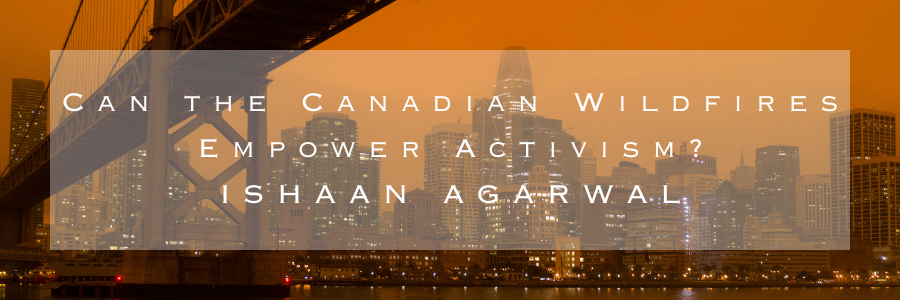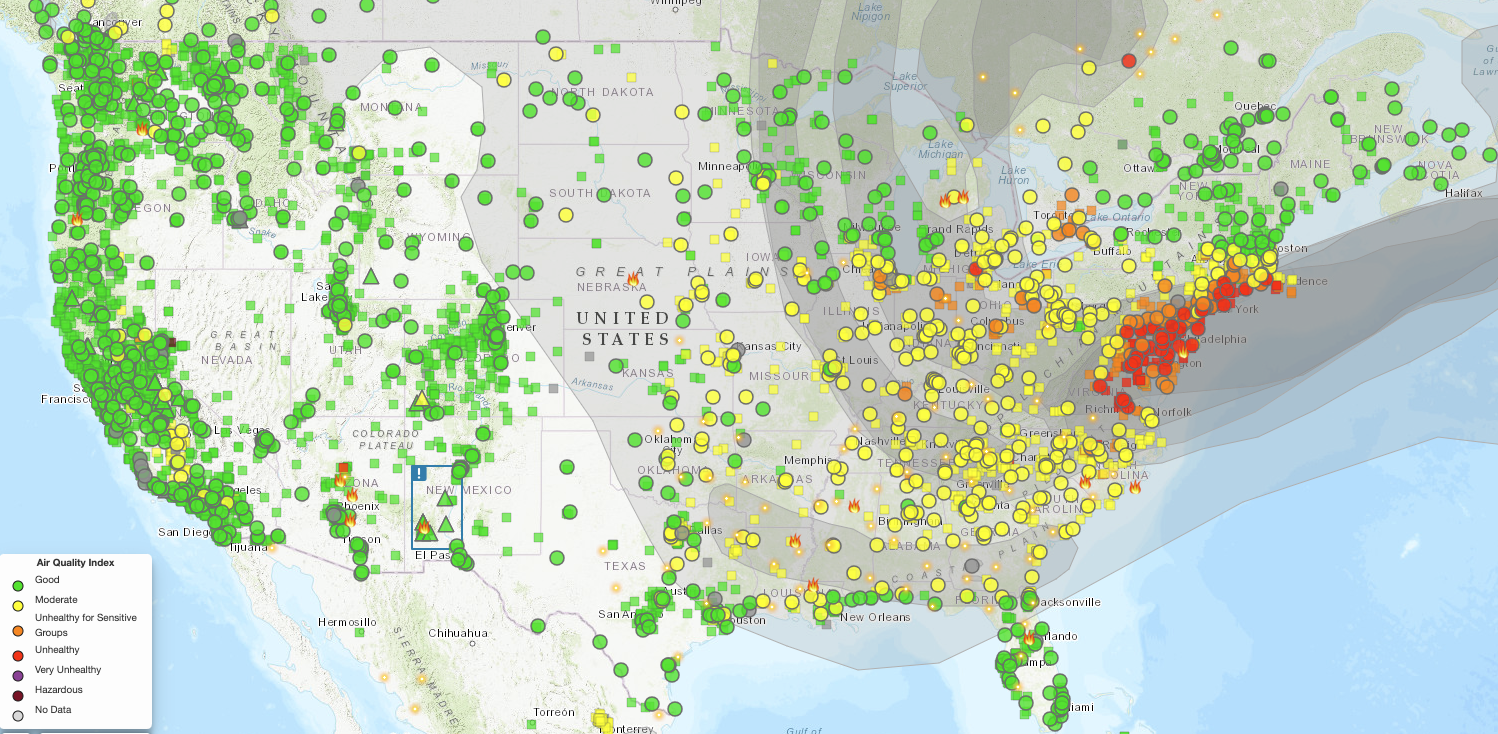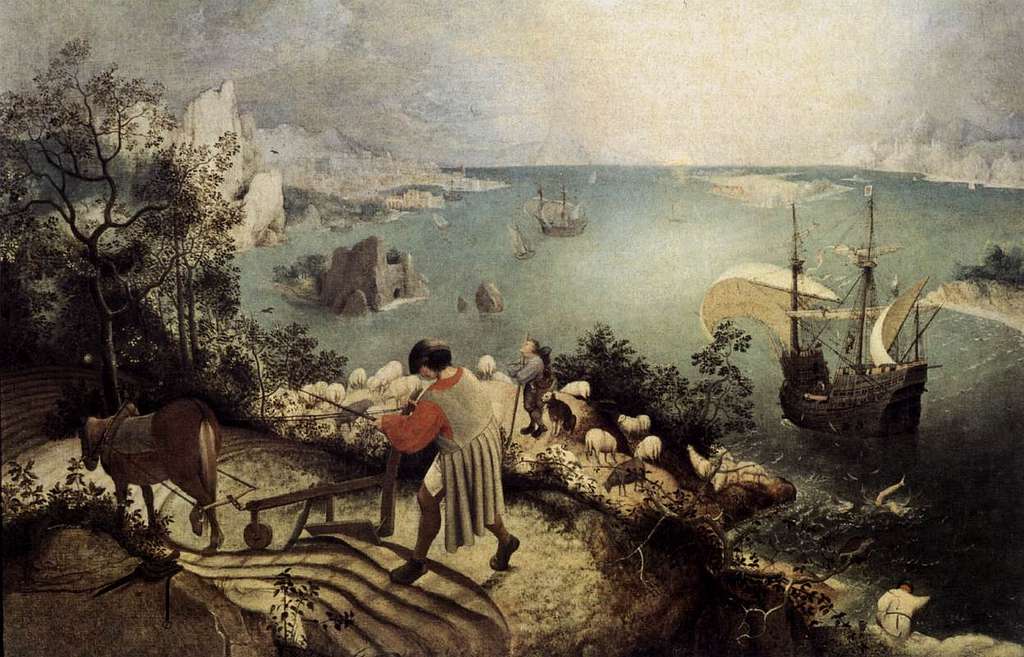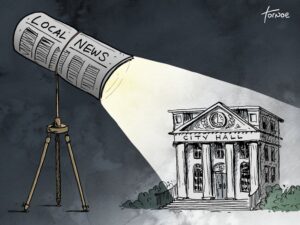My repository of thoughts on interesting ideas.
Can the Canadian Wildfires Empower Climate Activism?

Effect of the Wildfires
Dystopian orange skies blanketed New York this past week, symbolically shrouding the supposed luminescent United Nations and World Trade Center buildings. The resulting smoke from worsening Canadian wildfires started to impact the quality of air on the East Coast of the United States of America. New York, Philadelphia, Baltimore, and D.C. all placed code red and purple alerts into effect. However, the smoke was not and is not constrained to the Northeast, and states further down in the Southeast–Georgia, Alabama, and the Carolinas–are being placed under code yellow and orange alerts.
The smoke resulted in hazy skies and limited visibility in numerous areas, posing hazards to drivers, pilots, and those with asthma, heart, and respiratory illnesses. Individuals in regions with code-red alerts have been advised to limit outdoor exposure and wear KN95s or comparable face coverings to protect themselves from smoke particles.
 Choropleth shows air quality on 06/09/23 following wildfires. Taken from https://fire.airnow.gov
Choropleth shows air quality on 06/09/23 following wildfires. Taken from https://fire.airnow.gov
Government Action Against the Wildfires
The federal government is aware of the consequence of these wildfires, and the Environmental Protection Agency (EPA) is actively monitoring the situation and providing local and state officials with the necessary information to minimize health hazards.
The Canadian government has also dedicated its resources to aid the detrimental situation. Currently, the Canadian Armed Forces have been deployed to assist with fighting the wild forest fires, and a $1bn aid package has been announced to alleviate stress on communities affected by the fires. The U.S. will join its efforts, as President Biden announced Thursday that he is sending additional firefighters to its northern neighbor.
Climate Change’s Effect on Wildfires
Biden called the fires “another stark reminder of the impacts of climate change”. Climate change has contributed to hotter, drier climates and is responsible for nearly half of the increase in fuel aridity (drier fuel load) as per a 2016 study. These factors have significantly increased the frequency with which such forest fires occur. Furthermore, there has been evidence that rising global temperatures have caused winter rains to begin later in autumn and conclude earlier in spring, thereby extending the area and time during which forests are susceptible to fires.
Changes in Climate Attitudes
It is reasonable to assume that these recent wildfires and the adverse effects on the air quality in the U.S. will influence climate attitudes to a degree. This may be attributed to the psychology concept of construal level theory, introduced by Nira Liberman and Yaacob Trope. They essentially proposed that peoples’ awareness and willingness to take action are affected by their perception of the psychological proximity of the effects of a phenomenon, in this case, climate change. Numerous Californians have pointed out already that these dystopian scenes may intensify the realization of climate change for many “East Coasters” who had not experienced severe wildfire smoke as those in the Southwest have.
 Pieter Bruegel the Elder’s piece Landscape with the Fall of Icarus
Pieter Bruegel the Elder’s piece Landscape with the Fall of Icarus
Richard Fisher, a senior journalist for BBC Future, references Bruegel’s artwork Landscape with the Fall of Icarus and Liberman and Tope’s analysis of it when they introduced construal level theory in 2008, to illustrate this perfectly in his article regarding the influence of wildfires on climate attitudes. The piece depicts a peaceful scenery of a farmer in the foreground and a herder in the midground. However, with close inspection, one can see Icarus drowning in the sea in the background. His legs flail in the air, surrounded by melted feathers. Liberman and Tope argued that the farmer and herder’s indifference and obliviousness to Icarus’s adversity is due to their geographical distance from him, which equates to psychological distance. This particular perspective on the painting invites viewers to speculate whether the farmer and herder may have cared to assist Icarus had they only been closer to him.
Conclusion
While other involved psychological forces may minimize the effect of construal level theory, New Yorkers and Washingtonians will likely understand the perils of climate change to a greater degree than they had previously. This will begin a new discussion on climate change, and one may begin to wonder whether those orange skies can propel further government action against climate change to save the slowly burning world.



